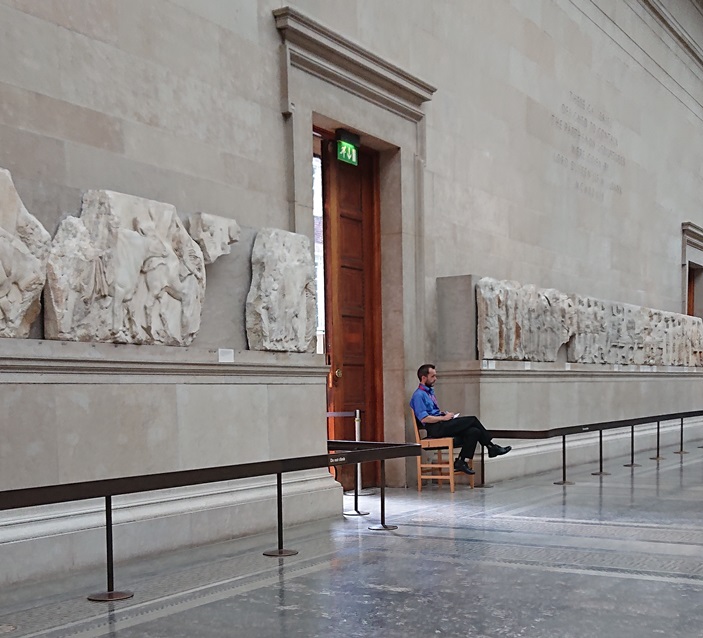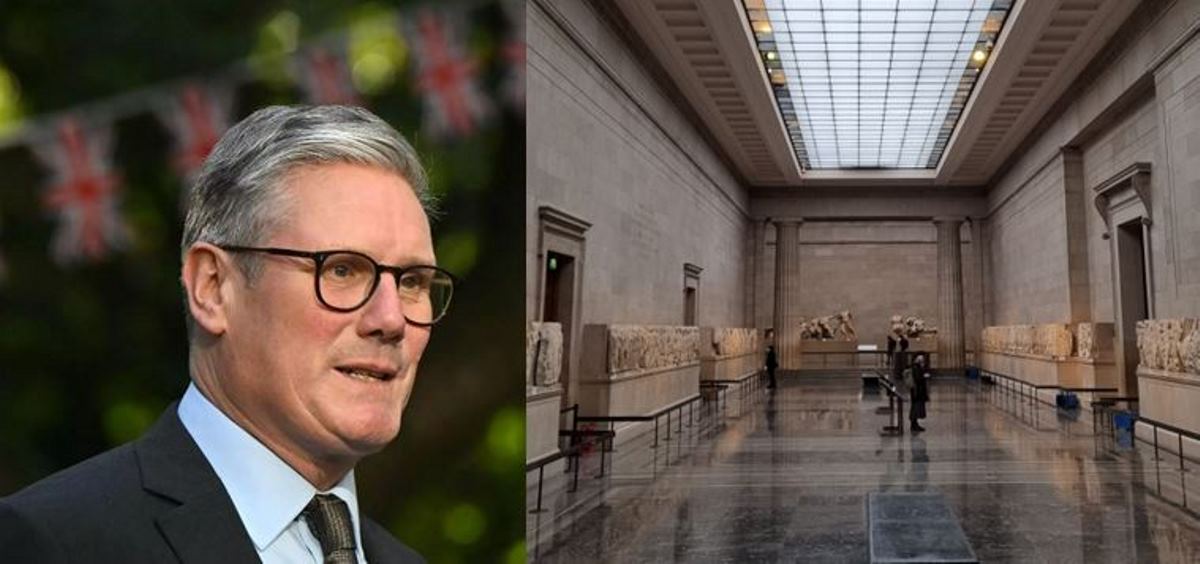Law student from Limassol, Cyprus, Petros Papadopoulos, met with Jeremy Lefroy MP for Stafford to discuss the reunification of the Parthenon Marbles.

Today, 05 July, Petros is organising a peaceful protest outside the British Museum from 4:30pm to 6:30pm.
RETURN is a non-governmental organization campaigning for the reunification of the Parthenon Marbles, back to Greece.The aim of the organization is to peacefully influence the British government to re-unite the Parthenon Marbles removed by Lord Elgin in the nineteenth century and shipped back to Britain.
On 07 June 1816, British Parliament voted to purchase from Lord Elgin his collection of sculpted marbles collected from the Parthenon and elsewhere on the Athenian Acropolis, these have remained in the British Museum despite repeated requests from Greece and elsewhere to find a way to reunite them.
On 20 June 2009, the Acropolis Museum in Athens was opened to the public and since it opened it has received millions of visitors from all over the world. The missing sculptures exhibited in the Parthenon Gallery of the Acropolis Museum are casts that were made by the British Museum and bought by Greece. Underneath these casts it simply says BM.
70% of the Parthenon Frieze is still preserved, much of it in very good shape, after nearly 2500 years this is something amazing and, it's not difficult to imagine the missing bits. The sculptures already in
Athens, especially the West Frieze, show much more detail than the over-cleaned London ones.
Members of RETURN will be handing out informative leaflets to people entering the museum, highlighting the merits of reunification of this specific work of art.
At the same time, passers-by may stop to take photos with the banners, to post on social media, adding their support to our cause. Posters and banners of RETURN will be outside the museum.
Notes to editors:
Petros Papadopoulos is a law student at the University of Cambridge, involved in Cypriot politics and aspires to lead his country to peace in the future.
"I have inspired memories of my uncle explaining how the Parthenon marbles were removed from Athens by an English Ambassador when Greece was under Ottoman rule and why it would be a great act to reunite what has survived in a museum in Greece. When I arrived in the UK to study I decided to carry out research on the issue in order to construct solid arguments for this cause. The reunification of the Marbles has nothing to do with nationalism- it is not a national matter- it is an issue that the whole world should be concerned with, especially as the Parthenon is listed as part of the Acropolis, a World Heritage Site."
The young activist is hopeful that this peaceful protest will have a massive appeal to people from all over the world. He believes that it could act as a small catalyst for the reunification of the Parthenon Marbles movement. Petros believes in achieving greater awareness amongst those that feel there is a just cause to reunite the Marbles in the Acropolis Museum in Athens, Greece. People from various cultures, backgrounds and ethnicities, support the cause and he concludes: "This indicates the sincerity of our arguments, associated with values of logic, fairness and justice; they are arguments which recognize no borders; they are arguments of humanity."





Comments powered by CComment